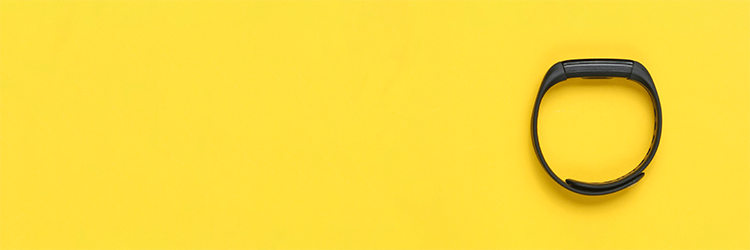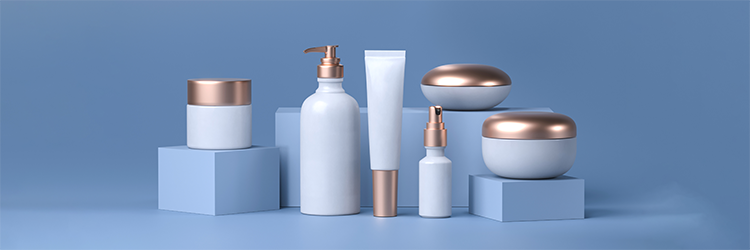
Disclaimer: None of the information in this article constitutes medical advice, and is just the opinion of the writer(s). We recommend that patients follow their doctor’s guidance in regard to prescription medication.
Neurontin is a prescription medication approved by the FDA to treat seizures and pain. It’s the branded version of the drug, and the generic version is called gabapentin.
These two medications both contain the same active ingredient, so we'll refer to them interchangeably throughout this article.
But is Neurontin actually proven effective for seizure and pain reduction? Is it more effective than generic gabapentin? Does it cause any side effects like weight gain? And how do real Neurontin patients rate and describe the drug's effects?
In this article we’ll answer all of these questions and more, as we review clinical studies on Neurontin to determine if it's effective against pain and seizures.
We'll dicsuss potential side effects, explain whether the drug causes withdrawal symptoms and weight gain, and feature unsponsored patient reviews.
Does Neurontin Reduce Seizures and Pain?
Neurontin has been thoroughly studied in clinical trials spanning decades for its effects on both seizures and pain.
A published in the Psychiatry and Clinical Neurosciences journal examined the efficacy of Neurontin for the treatment of epilepsy, which causes seizures.
Patients were either prescribed either Neurontin at 1,200 milligrams (mg) per day, Neurontin at 1,800 mg per day or a placebo capsule.
Over 20% of patients in the 1,800 mg group experienced a significant reduction in seizures.
A 1996 examined whether Neurontin could treat seizures in children.
A group of children with regular seizures were prescribed Neurontin. About half of the children experienced a 25% or greater reduction in seizures after using the medication.
By the end of the above-linked trial, two of the children (out of 32 total) taking Neurontin experienced a complete elimination of their symptoms and were seizure-free, and four more were only experiencing seizures once every few months (categorized as “almost seizure-free” by the study authors).
Neurontin is also clinically shown to be effective for pain relief.
A 2017 analyzed data from over 5,000 patients on Neurontin for neuropathic pain (nerve pain).
46% of patients experienced "moderate" pain relief, and 38% of patients experienced "substantial" pain relief.
We will conclude from the available research that Neurontin is effective against seizures and certain types of pain, which is unsurprising given that the medication is approved by the FDA for both indications.
Does Neurontin Cause Side Effects?
Neurontin causes side effects in some patients, as do most pharmaceutical medications that we’ve reviewed on Illuminate Health, but it doesn’t have a “black box” warning on its label, which is a good sign.
The black box warning is the most serious type of warning required by the FDA. It indicates a risk of potentially life-threatening side effects.
However, in 2019 the FDA did publish a about the side effects of Neurontin.
This letter indicated to patients that Neurontin may cause serious breathing problems. It described how patients with “respiratory risk factors” such as chronic obstructive pulmonary disease (COPD) were at increased risk of this side effect.
A on adverse events caused by Neurontin was published in the American Journal of Geriatric Psychiatry. It pooled results from three clinical trials on the drug.
Those taking a dose under 1,800 mg experienced dizziness more than 20% of the time. Trial participants at this dose also reported daytime sleepiness as a side effect 14.9% of the time, which was 9.1% greater than those taking placebo pills.
The most concerning side effect in our opinion which was noted in this trial was experienced by the higher-dose group.
Those taking a Neurontin dose over 1,800 mg per day were more likely to experience a condition called peripheral edema, which refers to swelling of the extremities. 7.5% of patients at this dose experienced this side effect.
Another side effect reported in a separate on Neurontin is called myoclonus. This is the medical term for repeated muscle jerking.
The study authors reported that 1.9% of patients taking Neurontin suffered from this side effect, but that it was resolved when Neurontin usage was stopped, which suggests that this effect is reversible.
Real People Try Neurontin
A YouTube creator named Alicia Marie has a Neurontin review with over 300,000 views that discusses her experience taking the medication for pain relief:
A physician's assistant (PA) named Shay explains why she doesn't think Neurontin is a useful medication in most cases:
Watch on TikTok
How Much Cheaper is the Generic?
As referenced in the intro to this article, gabapentin is the generic version of this drug.
Both gabapentin and Neurontin contain the same active drug ingredient, so patients are often curious about which is more effective.
A 2013 compared the effects of the two drugs, and the researchers found that Neurontin and gabapentin were equally safe and effective.
However, generic drugs often have a considerably lower retail price.
At the time of updating this article, the retail price of Neurontin is around $440 according to GoodRx.
The retail price of generic gabapentin is currently under $15 according to GoodRx.
We would recommend that patients speak with their doctor about generic gabapentin rather than Neurontin due to the potential cost savings.
Is Neurontin Addictive?
Whether or not a drug is addictive is difficult to definitively declare, because addiction varies so much between patients.
A analyzed whether Neurontin was addictive by examining results from real patients involved in over 100 clinical trials.
The researchers found that Neurontin was not likely to be addictive, at least in patients without a personal history of addiction or substance abuse.
A 2020 suggested that Neurontin could cause drug-seeking behavior because it may increase dopamine, which is a neurotransmitter associated with pleasure and reward seeking.
However, we should note that this trial used animal rather than human subjects, so the quality of data is lower in our opinion than in the previous study which mainly reviewed studies with human trial participants.
It appears inconclusive whether or not Neurontin is addictive at this point.
The below video from a channel called "Dr. B Addiction Recovery" suggests that Neurontin is addictive.
The doctor shares his clinical experience working with patients who claimed to be addicted to Neurontin, and how they would use the drug (keep in mind that while the title states "gabapentin" these are the same drug):
Patients Rate Neurontin
Drugs.com is a website that allows prescription medication patients to rate and review the drugs they're taking.
We cannot verify the accuracy or authenticity of any reviews on this site.
Neurontin has an average review rating of 7.5 out of 10 on Drugs.com for treating seizures at the time of updating this article.
A top positive review of Neurontin is published by a user named “4mymeds” who gave the drug a 10/10 rating, and claims it successfully treated their condition:
“Has controlled my seizures, in conjunction with Tegretol, for over fifteen years, seizure free.”
A top negative review of Neurontin is written by a user named “abusick88” who gave the drug a 2/10 rating, and claims it was ineffective and caused side effects:
“well neurotin has really not done anything for me..i was an alcoholic and had seizures..nope not doing anything I still feel like I'm about to have a heart attack/seizure...just aint doing it for me”
Does Neurontin Relieve Anxiety?
Neurontin has been studied for its effects in patients with anxiety.
A published in the Breast Cancer Research and Treatment journal examined the efficacy of Neurontin for reducing anxiety in breast cancer survivors.
The patients either took Neurontin at a 300 mg daily dose, at a 900 mg daily dose, or a placebo pill.
Both groups taking Neurontin experienced significantly reduced anxiety compared to those taking placebo pills. One surprising result was that the lower dose was more effective for decreasing anxiety levels.
A published in Case Reports for Psychiatry documented how a 59 year old woman who was prescribed Neurontin reported a complete resolution of her generalized anxiety disorder (GAD) symptoms.
It seems from early research that Neurontin may be effective for treating anxiety, but we do not recommend using the drug for this purpose alone, as it's not currently FDA-approved for the treatment of any anxiety disorders.
We would consider Neurontin's effects on anxiety to be a potential secondary benefit of the drug for patients with both seizures and anxiety or pain and anxiety.
Does Neurontin Cause Weight Gain?
Use of Neurontin is associated with weight gain.
A titled “Drugs Commonly Associated With Weight Change” documents how Neurontin is associated with an average weight gain of 4.85 pounds after six weeks of use.
This equates to a potential annualized weight gain of 42 pounds.
Researchers are not clear about why Neurontin is associated with weight gain, and are also unclear on whether the medication directly causes weight gain or if instead it causes biological effects which have a downstream effect of weight gain.
We would recommend that patients who are overweight or obese speak with their doctor about this potential side effect, because their doctor may be able to prescribe them medication that treats the same condition(s) but is not associated with weight gain.
Can Neurontin Cause Withdrawal Symptoms?
Neurontin can cause withdrawal symptoms, and is proven to do so at least in some patients.
A published in the Annals of Pharmacotherapy medical journal documented how a 76 year old woman developed a condition called akathisia while withdrawing from Neurontin.
This condition causes patients to be restless and unable to sit still. It’s described as being quite uncomfortable. In this case, the condition resolved itself after three days.
A highlighted 18 patient case reports on withdrawal symptoms from Neurontin, as well as addiction to the drug.
The above-linked study listed “a history of alcohol or substance abuse” as an independent risk factor for experiencing addiction to and withdrawals from Neurontin.
Symptoms varied in the study, but the most commonly reported withdrawal symptoms were confusion and disorientation (experienced by 45% of patients), excessive sweating (36%) and gastrointestinal discomfort (23%).
Because Neurontin may cause uncomfortable withdrawal symptoms, we would strongly recommend that patients considering stopping use of the medication speak with their doctor first, because tapering off according to research standards can make the quitting process safer and decrease the risk that a patient experiences withdrawal symptoms.
Neurontin and Alcohol
Neurontin’s states that alcohol should not be used while taking the drug.
Interestingly, Neurontin may actually reduce cravings for alcohol and reduce dependence on alcohol.
A found that Neurontin use reduced alcohol dependence to a statistically significant degree.
In the trial, only 4.1% of alcoholic patients taking a placebo drug were able to fully refrain from alcohol use, while 11.1% of patients taking 900 mg of Neurontin and 17% of patients taking 1,800 mg of Neurontin were able to fully refrain.
This data suggests that for patients who are able to refrain from alcohol use in the initial period of Neurontin use, the drug may make it easier for them to abstain from alcohol long-term which can have positive health effects.
Patients should have an honest discussion about alcohol use with their doctor, because for those who are unable to stop drinking alcohol, their doctor may be able to prescribe a different drug that doesn't have a negative interaction with alcohol.
Is Neurontin a Controlled Substance?
A controlled substance refers to a drug (either illicit or prescription) that has restrictions on its sale, transport and use due to the potential for addiction and abuse.
Neurontin is not a federally controlled substance in the US, the Drug and Enforcement Agency (DEA).
However, the drug is a controlled substance in an increasing number of states.
A recent Pharmacy Today article states that Neurontin is a controlled substance in the following states: Alaska, Kentucky, Michigan, North Dakota, Tennessee, Virginia and West Virginia.
There’s also been a recent push by both the FDA and the DEA to make Neurontin a federally controlled substance due to the risk of abuse.
We would recommend that patients in states where Neurontin is a controlled substance speak with their doctor about the legal status of the drug, and consider keeping their prescription information with them whenever they travel with the drug.
Is Neurontin Safe for Dogs?
Dogs can experience seizures and pain, and thus many people are curious about whether Neurontin can be used to treat dogs as well as humans.
While it may be difficult to measure pain in dogs, a which used Neurontin to ameliorate post-operative pain in dogs attempted to do so.
The study authors utilized morphine as a proxy to measure the dogs’ pain: the more morphine that was required, the more pain the dog was likely in, and a lower need for morphine suggested less pain.
The animals in the study were administered morphine based on whether they were aggressive and in visible distress, which is how the researchers qualified pain.
Dogs receiving Neurontin required significantly less morphine, suggesting that the drug may be effective for reducing pain in dogs.
A 2006 tested the effects of Neurontin in dogs suffering from seizures.
6 of the 11 animals studied had a positive response to the medication, and in that group of responders, the average number of seizures per week as well as the average number of days without a seizure per week decreased by the end of the study.
These studies suggest that Neurontin may be efficacious for reducing seizures and pain in dogs, but we strongly recommend only giving the medication to a pet if it's prescribed by a veterinarian.
The recommended dosage likely differs between humans and dogs, and pet owners that give prescription drugs to their dog without consulting a vet are putting the animal’s life at risk.
Neurontin Dosage
Neurontin may be prescribed at a wide range of dosages depending on a patient's condition and the severity of that condition.
A 2022 lists Neurontin's dosing range for treating seizures to be between 300 mg and 1,200 mg taken three times per day, which results in a total daily dose between 900 mg and 3,600 mg.
This seizure dosing range is higher than the dosing range for fibromyalgia.
The fibromyalgia range is between 400 mg to 800 mg taken three times daily, resulting in a total daily dose between 1,200 and 2,400 mg.
Neurontin is also prescribed for neuropathic pain, though this is less common. Neuropathic pain refers to nerve pain which can affect nerves throughout the body. It’s a very uncomfortable condition.
The dose range for neuropathic pain is the exact same as the dose range to treat seizures: between 900 mg and 3,600 mg per day, divided into three oral doses.
A published in the Clinical Therapeutics journal showed that Neurontin is cleared via excretion through the kidneys, so dosage is typically lower in patients with kidney disease, because of the risk of overburdening these vital organs.






















































































































































































































































































































































































































































































































































































































































































































































































































































































































